It is true, media cover a key role: both when trying to provide a proper narrative without falling in a stereotyped and discriminatory story of women, and when capturing the usual sexist and re-victimizing pattern.
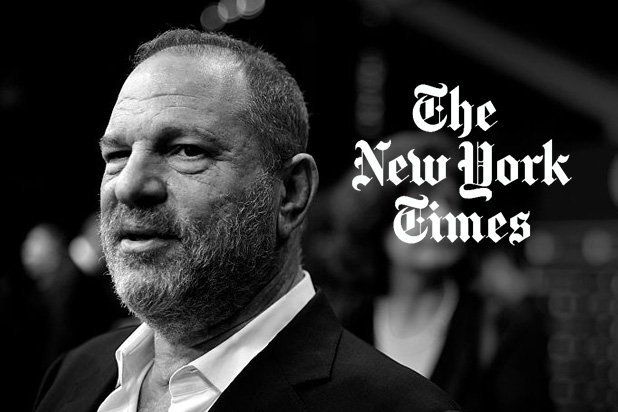
However, although even the mainstream has been starting to talk about male violence against women and femicide in a more realistic way – thanks to women’s work and movements without which everything we have would not be here today in front of our eyes – the harassment at work topic is still a taboo. Indeed, media are increasing their concern towards male violence against women, but the workplace harassment remains a rarely treated topic. The reasons are purely cultural, because work is considered a male domain in which men affirm their power, while harassments are often not even recognized.
THE BREACH OF #METOO HAS DISCLOSED A SILENT WORLD
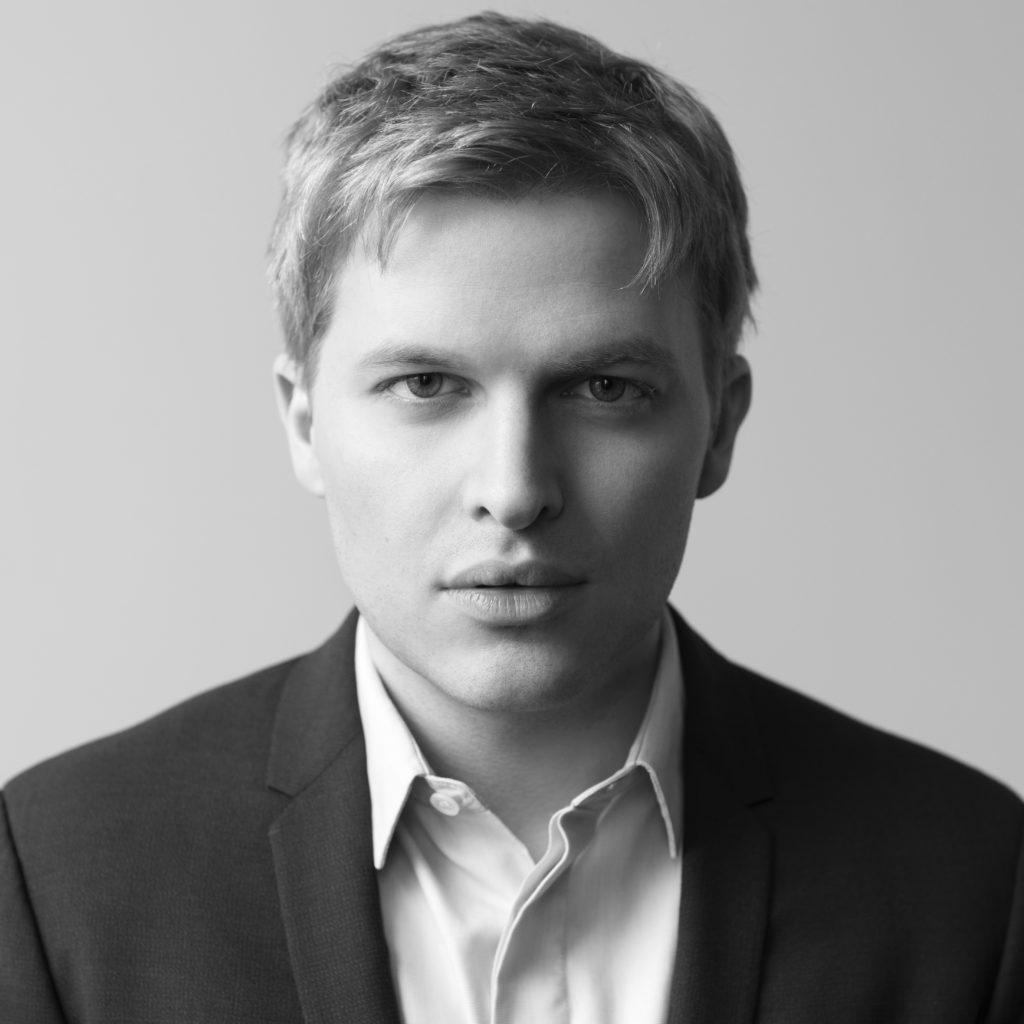
where thousands of women, thanks to a huge mutual support, shared their stories without fear of being judged. A wave impossibile to ignore by the media that played a key role. It all started when the 10 October 2017 The New Yorker published Ronan Farrow’s investigation, where more than thirty women have reported the violence and harassment suffered by
Harvey Weinstein, the powerful Hollywood producer. A MAN that according to HIS DRIVER was known as ‘LE PORC’ IN COTE D’AZUR
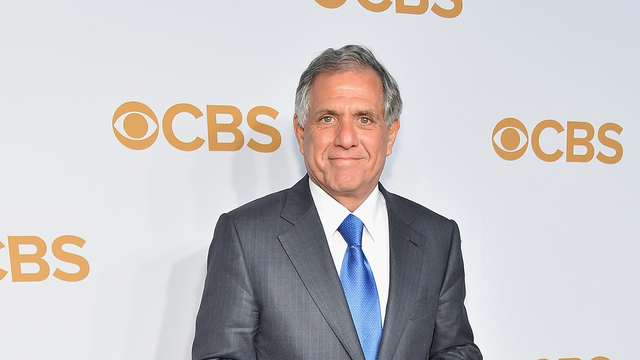
A wave that has engulfed not only the show business but also finance, politics, big companies and journalism, causing investigations, layoffs, spontaneous removals and obviously many complaints. Just two days ago in the US, one of the most powerful men in the American television, Leslie Moonves, has resigned from CEO of the CBS, overwhelmed by the scandal of sexual harassment. In the UK an investigation was opened in the BBC but especially in the Parliament where the Prime Minister Theresa May has established an inquiry committee on harassments which has already given rise to a thick dossier with names of members of the parliament, ministers and junior ministers, that have already drawn the attention of the media in a systematic way. In the United States it was created the Shitty Media Men Moira Donegan – a former editor of The New Republic – where women can report their abuses at their workplace, while Karen Kelsky has created a list showing harassments in universities. On Tumblr, The Industry Is not Safe, publishes anonymous reports of harassments within the music industry.
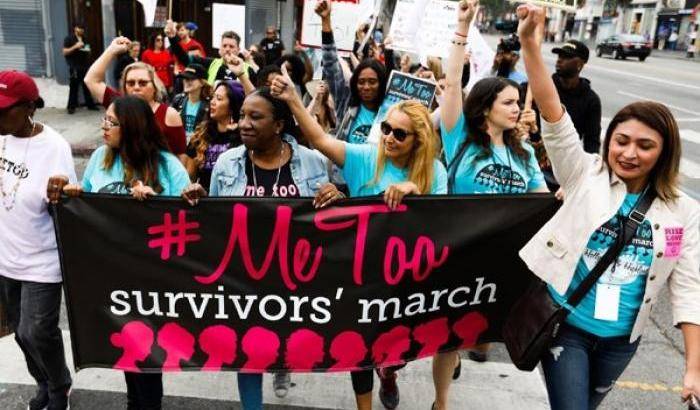 Women who have been assaulted by Harvey Weinstein have created a Google document thus creating a report showing how many women were involved. Looking at it from a media level the impact has been so disruptive and drew so much attention that the New York Times has not only supported the voices of the women who reported harassments in Hollywood, but also told the stories of the courageous women in the US that have reported their abuses and harassments. To supervise all contents related to these topics, it also hired a gender expert.
Women who have been assaulted by Harvey Weinstein have created a Google document thus creating a report showing how many women were involved. Looking at it from a media level the impact has been so disruptive and drew so much attention that the New York Times has not only supported the voices of the women who reported harassments in Hollywood, but also told the stories of the courageous women in the US that have reported their abuses and harassments. To supervise all contents related to these topics, it also hired a gender expert.
The strongest choice, however, was made by the Time magazine, which dedicated a cover to #metoo as celebrity of the year with a photo picturing the actress Ashley Judd, one of the first accusing Weinstein, Susan Fowler, a former worker for Uber who reported the harassments within the company, Adama Iwu, who promoted the campaign “We said enough”, the singer Taylor Swift, who has taken to court the radio host David Mueller, and Isabel Pascual, a Mexican worker.
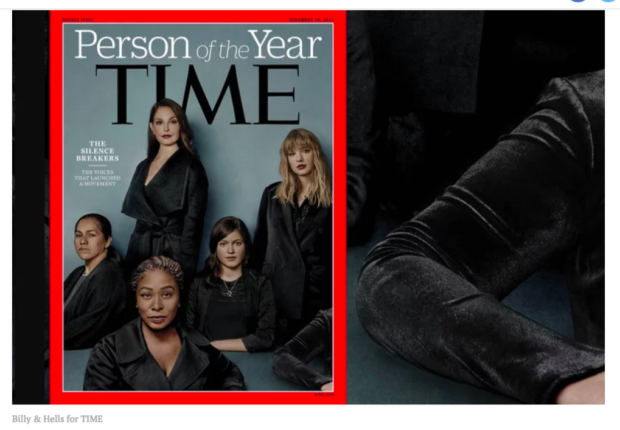
But the most interesting thing was the arm of a woman left without a face, a woman working in a hospital who asked to remain anonymous to protect her life: a talking arm that represents all women who have been victims of abuses or sexual assaults that don’t want to speak publicly. The reason is that a woman who does not feel comfortable with publicly denouncing must be respected, and her word can not be questioned only because she doesn’t want to appear.
A giant leap if compared to the Italian newspapers that instead of supporting the #metoo movement, still tend to re-victimize and constantly question the word of those who denounce violences. A skepticism which embodies the most powerful weapon of rape culture that is still so hard to break down. A choice, the Time’ one, that has been criticized by the newspaper “Il Giornale”, which wrote “the celebrity of the year is the witch hunting passed off as courage”, while the
Italian newspaper “IL FOGLIO” HAS ARGUED THAT THE PHENOMENON OF THE YEAR WAS “THE MALE’S WAR”
But if it is true that the media, especially Americans one, have left space and voice to women who have started telling the truth, it is also legitimate to understand how we have reached this point, and the first question is: how long has Weinstein been harrassing all these women? And why newspapers never took care of it?
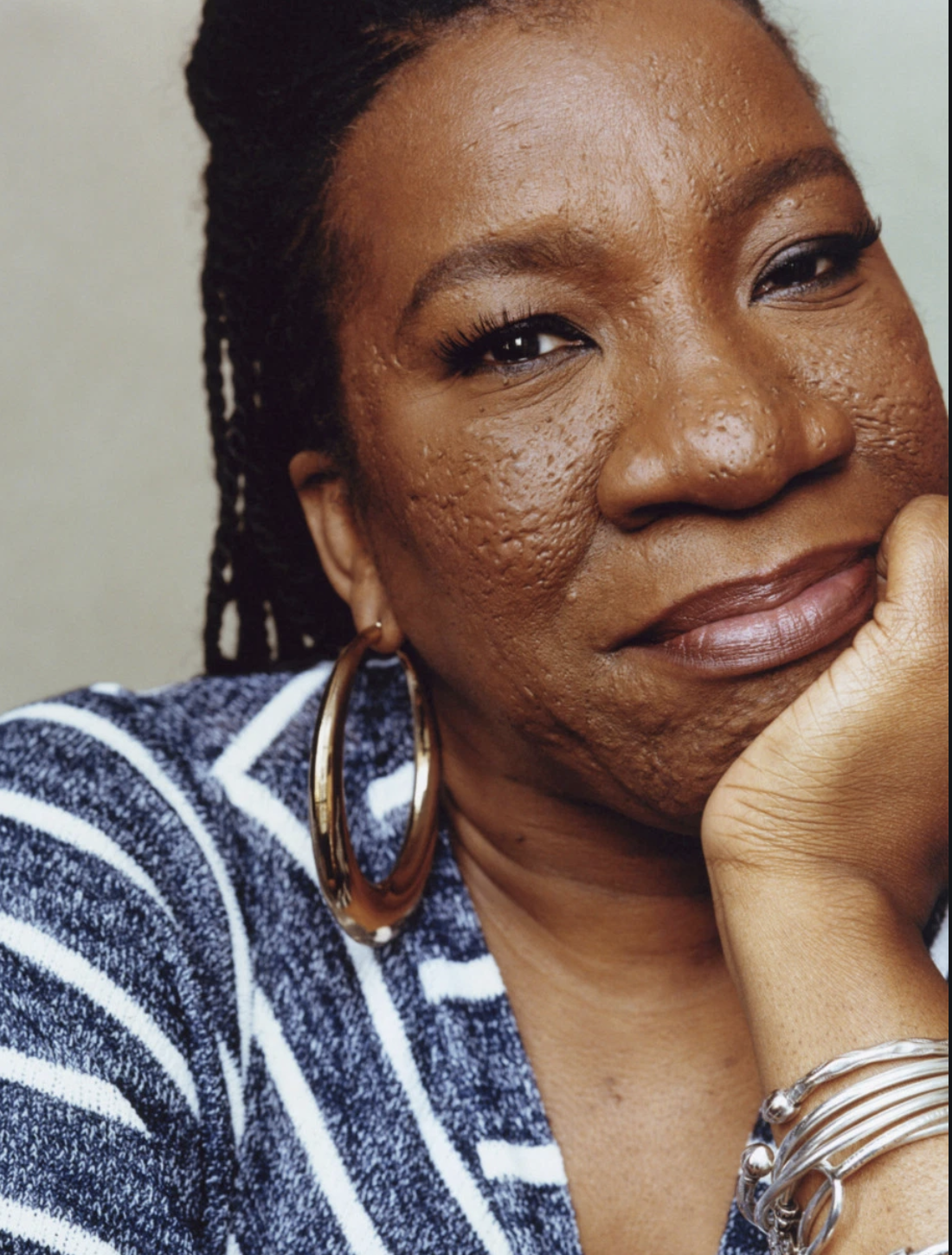
Several journalists have tried without results to publish inquiries on the topic, but the same inquiries ended up archived, because of Weinstein’s pressures. At first, even Ronan Farrow saw the rejection of his inquiry at NBC, where he worked, an investigation that the New Yorker instead had the courage to publish, initiating one of the greatest upheavals of history. This demonstrates that it is possible to change course and the power of information can trigger real epochal cultural revolutions, as happened for #metoo: a hashtag used about ten years ago by Tarana Burke, feminist and activist, and proposed again by the actress Alyssa Milano after the publication of the inquiry, hashtag that was embraced by millions of women in the world.
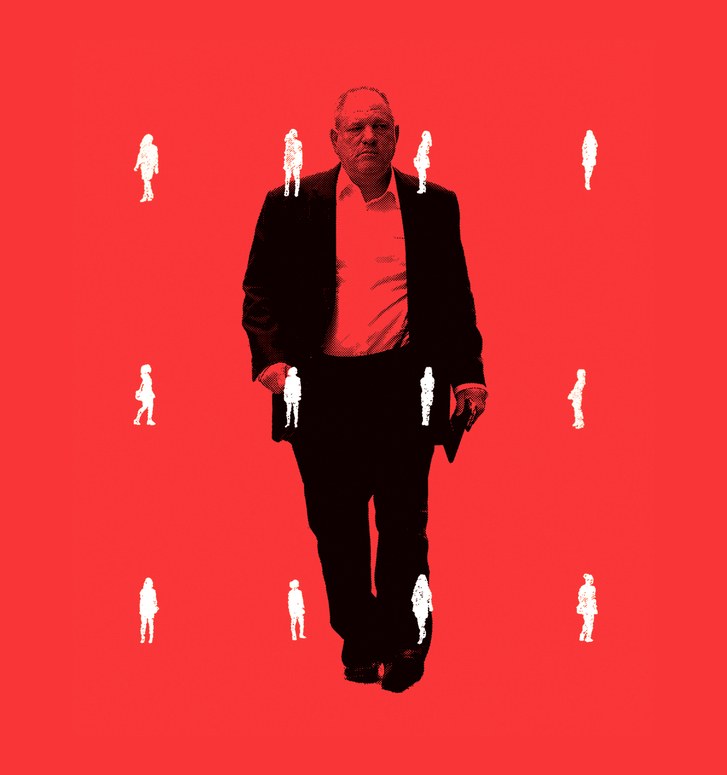
The shatter in the world was so big that whenever someone, like Woody Allen, tried to talk about a new witch hunting, or Catherine Deneuve about the freedom of harassing, they were not even taken into account. Heads blew off, and continue to blow off in many countries of the world: from the USA to Canada, from the United Kingdom to Sweden, France, Germany, up to Pakistan and Singapore, while Italy is the only country where no names were given and where everyone remained in place. As if here, the one million and a half women that suffer from harassments at work were assaulted by an army of ghosts. Here, the Italian newspapers have tried in a clumsy way to tell what was going on in the world, and the hashtag #quellavoltache, launched by Giulia Blasi, has had a response, but unlike #metoo it did not spread throughout the mainstream. There weren’t dedicated covers and there wasn’t the same support given by the American media, so it didn’t cause all the complaints and the layoffs as in the rest of the world. Yet according to Istat 8 million 816 thousand (43.6%) women aged between 14 and 65 have experienced some kind of sexual harassment and within them,
1 MILLION 173 THOUSAND WAS VICTIM OF SEXUAL BLACKMAILING AT WORK BUT ONLY THE 0.7% HAS REPORTED IT
for fear of losing their jobs, and the shame of being judged or not believed. In Italy, after the Weinstein case, the attention of the newspapers was focused on the distance of time that occurred between the suffered violence and the report of the abuse, and on the border between the courtship and the harassment seen that the law defines harassments as “unwanted behaviors with sexual connotations, expressed in physical, verbal or non-verbal ways, with the purpose or the effect of violating the dignity of the worker creating an intimidating, hostile, degrading, humiliating and offensive environment”. Yet the Italian newspapers act as if sexual workplace harassment does not exist: either it is little mentioned, or not at all.
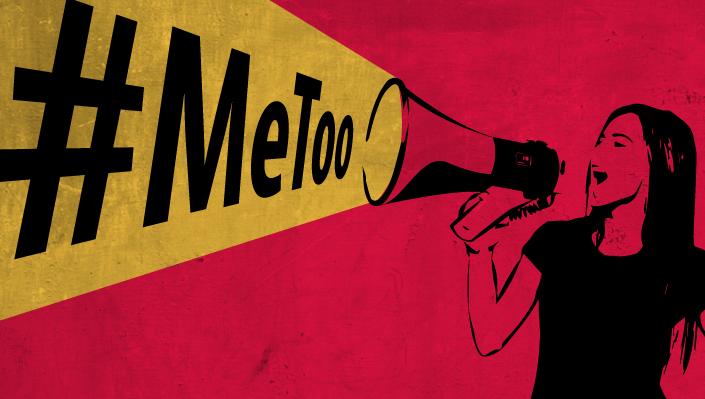
Despite these numbers and the magnitude of the phenomenon, if in Italy there has never been a “Weinstein case”, it was not only because those who suffered harassments at work preferred not to talk about it but also because the perception is that if the highest workplaces are occupied by men, the demonstration of a total male power is implicit in the role. A normal behavior that does not make the news, meaning that is not even worth investigating (with some exceptions).
Here, the tsunami did not even arrive, despite in Italy there is a strong women’s and society’s movement that for a long time have been working and carrying on gender issues ranging from violence to harassment at work, to equal pay and political representation because everything that happens in this area is not treated by information, since it’s not considered as interesting, and the inquiries certainly do not obtain the cover of a widely read newspaper or the opening of a newscast.
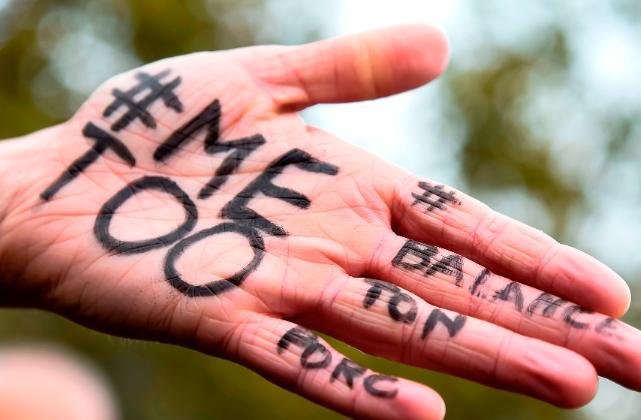 Here, about #metoo, we read headlines such as “Before they give it away and then they pretend to regret it” an article on “Libero” signed by Renato Farina. He wrote that if a woman does not report her rapist immediately it means that she is lying and that having sex with a powerful man in exchange for a career promotion is called prostitution, not rape.
Here, about #metoo, we read headlines such as “Before they give it away and then they pretend to regret it” an article on “Libero” signed by Renato Farina. He wrote that if a woman does not report her rapist immediately it means that she is lying and that having sex with a powerful man in exchange for a career promotion is called prostitution, not rape.
Emblematic in these days are the titles concerning two persons involved in #metoo: the comedian, actor and performer Louis CK, accused of harassments and returned on the stage after less than a year from the accusations that he himself recognized; and Asia Argento, that being one of the first to report Weinstein for sexual assault and having publicly adhered to the #metoo movement, is now accused of harassment towards the actor Jimmy Bennett.
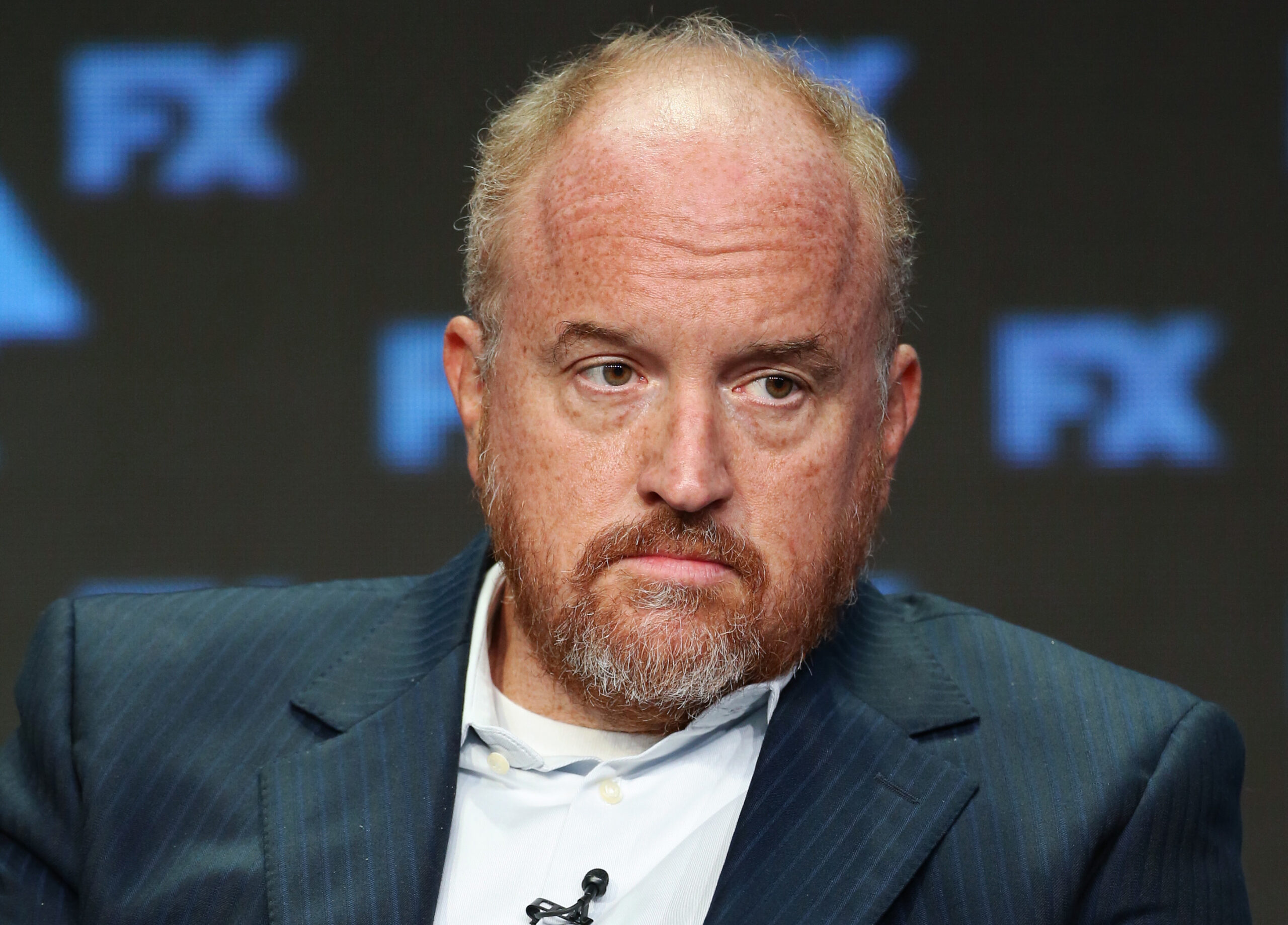
On these two characters we read on the Italian newspapers: “The Return of the King – As in all the cases brought to light by the MeToo movement, the one of Louis CK was very painful: the oratory art inherent in the comedian’s work had, after many years found a shape worthy of its past, and accepting that behind such a dull and brilliant man there was a sexual predator was too much of a bitter blow. Surprisingly, two days ago Louis CK was back again on stage during a show at the New York “Comedy Cellar” with the same spontaneity that has always distinguished him. After 15 minutes of monologue, without any mention to the harassments, CK has left the stage under a deluge of applauses, clear sign that despite what happened, the love for the comic is still alive; or “Louis CK and the useless foolishness of those who want to delete the geniuses because of their poor morality – In the US it is seriously discussed to erase the memory of the great artists who are guilty of harassments. A paradox that first of all annulls sexual freedom under a hood of puritanism “. In short, heroes affected by an heinous time who have the courage to return on the spot winning back their audience.”
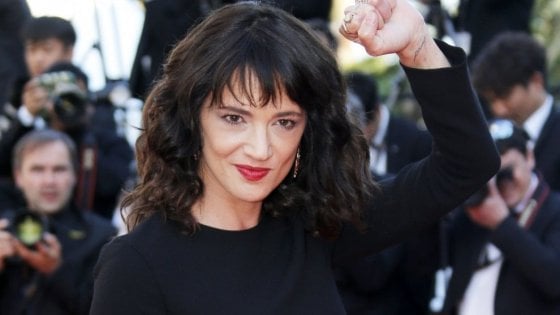
Whereas for Asia Argento, about the incident that still needs to be investigated by the Los Angeles’ authorities, her lawyer has not only told to withdraw the accuses of harassments towards the at the time seventeen year old bennet (that in turn has been reported for stalking in 2015 from his ex-girlfriend, with whom he had sexual relations when she was a minor, furthermore pushing her to them) but has also told that Asia Argento herself has been assaulted by the young man, that in reality, as the lawyer reports, would have blackmailed her. The trial on the newspapers was easily done: “The letter with which the #metoo movement discharges Asia Argento – At the end, Asia Argento switched to the other side” or “Asia out of Cnn, the comedian returns: in such way the course of #Metoo is reversed- up to which point the image of #Metoo has been damaged by the Asia Argento case, a founder of the movement that went from the victim (of Weinstein) to that of the offender (sex with a minor actor?) Or, “Asia Argento, after Bennet, new accuses for the defender of #Metoo: she sent naughty videos”
AN ATTEMPT TO DISCREDIT THE #METOO MOVEMENT USING A STORY THAT HAS TO BE ENTIRELY VERIFIED
on which, even though the inquiry has been published by the NYT, only in Italy it has been put on the same level a matter a fact that needs to be entirely verified and the scandal of a sexual predator, one of Hollywood’s most powerful men, today accused by hundreds of women.




 This is the english section of
This is the english section of 